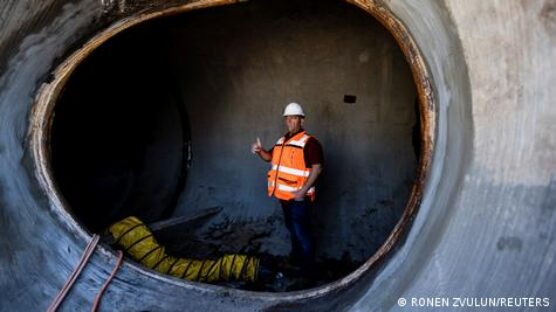Perseverance rover to help NASA find ‘ancient signs of life’ on Mars
By AFP
21 February 2021 |
2:33 pm
After a seven-month journey, NASA's Perseverance rover prepares to touch down on Mars on Thursday after first negotiating a risky landing procedure that will mark the start of its multi-year search for signs of ancient microbial life. "We know Mars had water at one point, we know that it was habitable, it could have had life at one point. That's why we're going back and looking for it," Perseverance deputy project manager, Jennifer Trosper, tells AFPTV.
In this article
Related
Related
13 Apr
Volkswagen will expand its production and research facilities in Anhui province as the German automaker looks to reclaim its title as China's top-selling car brand.
14 Apr
TikTok is seemingly developing a photo-sharing app like Instagram.
17 Apr
With Nigeria’s key lending rate at 24.75 per cent, developers in Nigeria’s real estate sector say the rate is fast impacting the growth of the industry. How are developers adapting to market shifts and new opportunities amid these challenges? Ayoolanrewaju Kuyebi, the MD and CEO GMH Luxury joins CNBC Africa for this discussion.
17 Apr
In Nigeria, a pharmacist's club create awareness about andropause. They de-stigmatizes andropause and advocates regularly healthy checks.
4 days ago
Australian scientists say the Great Barrier Reef – the world's largest coral reef, stretching over 2,300 kilometres along the country's northeastern coast – is undergoing its seventh "mass bleaching" event since 1998. This comes after they conducted aerial surveys of more than 300 shallow reef. Faced with climate change, coral reefs are the most vulnerable ecosystems in the world. But various techniques are being experimented to restore them
2 days ago
The world of work is undergoing a rapid transformation, constantly reshaping how we think about work, careers, and success. The rise of remote work, the increasing importance of skills over degrees and of course, the impact of artificial intelligence and automation has all led to what we now call the new work era.
Latest
1 day ago
Find these stories and much more when you grab a copy of The Guardian on Thursday.
1 day ago
Tunde Onakoya, the Nigerian Chess expert who smashed the previous Guinness World Record for the longest chess marathon has returned to Nigeria. The founder of Chess In Slums Africa broke a new record of 60 hours of playtime in New York’s Times Square last Saturday, which is still receiving confirmation from GWR.
1 day ago
Israel's economy suffered a major contraction in the final quarter of 2023, following the terrorist attacks. Its economy shrank by 5.2% compared with the previous quarter. Much was related to the labor force disruption which resulted when around 300,000 reservists were called up to the country's armed forces.
1 day ago
The German government revised its economic growth forecast for 2024 marginally from 0.2% to 0.3%, Economy Minister Robert Habeck confirmed on Wednesday afternoon.
1 day ago
The central Mexican city of Celaya has become the scene of a brutal turf war between rival drug cartels. These criminal groups have taken advantage of its strategic position at the crossroads for transporting drugs into the United States. Kidnappings, shootouts with police and drive-by killings now occur on an almost daily basis in broad daylight. Nearly 500 people were killed in Celaya last year. The city's police officers (pictured) risk their lives every day and are forced to travel in armoured vehicles. Our France 2 colleagues report, with FRANCE 24's Lauren Bain.
1 day ago
We look at the US papers, who react to Ukraine being granted a $61 billion aid package. Also, five migrants die attempting to cross the Channel, just hours after the controversial Rwanda asylum bill is passed by the UK parliament.
×

Get the latest news delivered straight to your inbox every day of the week. Stay informed with the Guardian’s leading coverage of Nigerian and world news, business, technology and sports.


















0 Comments
We will review and take appropriate action.